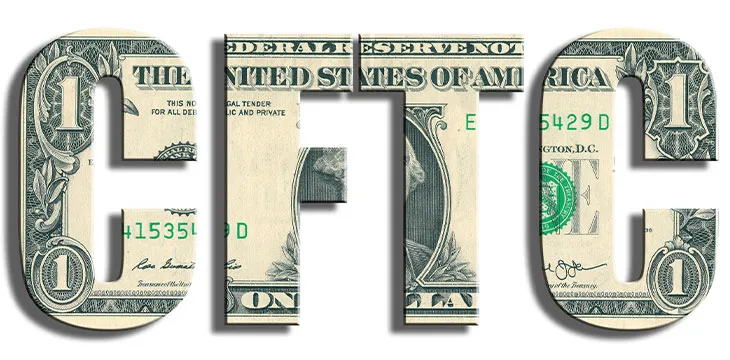|
Getting your Trinity Audio player ready...
|
Controversial “crypto” exchange FTX hopes the Commodity Futures Trading Commission (CFTC) will vanquish the Securities and Exchange Commission (SEC) in the regulatory turf war over which branch of the U.S. government gets primary oversight of digital assets.
Bloomberg recently reported that Sam Bankman-Fried (SBF), co-founder and CEO of the Bahamas-based FTX, had significantly stepped up his group’s lobbying activity in Washington, D.C. Indeed, SBF has become a fixture on Capitol Hill, appearing at committee hearings and conducting one-on-one meetings with influential lawmakers who possess the thumbs that could tilt the regulatory scales one way or the other.
In the world of financial products, digital assets have a relatively short history but are increasingly on the radar of a number of Washington pols. Some of these pols have drunk the “crypto” Kool-Aid while others view the likes of SBF as an aspiring fifth horseman of the financial apocalypse.
This split is also reflected in the fight over which federal agency will take the starring role in regulating digital assets. The CFTC, whose remit includes derivatives (futures, swaps and other ‘exotic’ financial mechanisms), went out on a limb in 2014 by declaring that Bitcoin and other virtual currencies were commodities and thus fell under the CFTC’s purview.
But the SEC cast doubt on this assumption by suggesting that many “crypto” tokens are actually securities, a view that has grown more assertive since Gary Gensler assumed the chairman’s role last year. Tokens issued by the likes of Ethereum (ETH) and Ripple Labs (XRP), which involved extensive pre-mines that benefited insiders and early investors, have found themselves squarely in the SEC’s crosshairs.
And so the stage is set for an epic struggle over which agency’s view will prevail. Meanwhile, FTX and SBF have clearly indicated which outcome they prefer and are stepping up efforts to ensure they end up on the winning team.
Working the refs
In February, CFTC chair Rostin Behnam appeared before the Senate Agricultural Committee, arguing for the CFTC to be given “an increasingly central role in overseeing the cash digital asset commodity market.” Behnam wants the CFTC to expand beyond regulating digital currency derivatives trading and assume oversight of token trading on spot markets as well.
This proposal has the enthusiastic support of SBF, who tweeted congratulations to Behnam when his CFTC role was confirmed by the Senate last December. Last week, SBF tweeted his support for the CFTC’s pursuit of a bigger budget to allow it to handle all digital currency-related matters, going as far as to suggest that the digital currency industry could contribute to this new funding.
SBF has been far less laudatory in his comments regarding the SEC. Last September, SBF admitted that there’d been some “mutual tension” between the digital currency sector and the SEC, but claimed this was due to things having “got off on the wrong foot” between Gensler and some unspecified “crypto” figures.
SBF acknowledged that there’d been “situations where the SEC feels like, you know, there have been extremely non-compliant companies that have also been difficult to work with and where the industry feels like they haven’t gotten the guidance they want from the SEC.” But SBF insisted that “this doesn’t need to be a war between industry and regulators” and said he’d be “really sad” if angry words turned to regulatory blows.
Gensler had previously told the same network that his aim was to “bring basic investor protection to protect people against fraud manipulation. And [crypto] is an area that’s been rife with fraud and abuse.” Hearing these words, SBF retorted that such sentiments might have applied “three years ago” but insisted that “things have been cleaned up by the industry to some extent over the last few years.”
Outsourcing regulation
SBF’s warm welcome to the CFTC’s new boss last December bore fruit at a March 31 meeting of the House of Representatives’ Agricultural Committee (which has oversight of the CFTC). Behnam appeared to suggest that a proposal submitted by FTX.US—to allow its trading platform to directly clear derivatives backed by margin for its customers, with no intermediary required for full collateralization of derivative positions—could eventually become part of the CFTC’s regulatory playbook.
While his outfit was proceeding “cautiously,” Behnam nonetheless noted that the CFTC was “considering and contemplating” the FTX.US effort to rewrite the rules for FTX’s benefit. Despite his obligatory caveats, Behnam may have tipped his hand by saying the FTX proposal “could end up leading to more efficient trading execution, less risk in the system.”
The idea of an industry presenting ready-made rules to the entity responsible for regulating its operations is commonplace nowadays, but it does tend to leave the impression that the fox has been handed responsibility for guarding the henhouse. In this case, the fox, or rather the FTX, has been cozying up to the farmer for some time now.
Last November, FTX hired Mark Wetjen, a former acting chair of the CFTC, as the exchange’s head of policy and regulatory strategy. FTX.US has employed the services of a lobbying firm (T Cap Solutions) led by Charlie Thornton, a former adviser to another CFTC chair. And last August, FTX.US tapped Ryne Miller, former legal counsel to Gensler when the latter was head of the CFTC, as its new general counsel.
These new FTX execs are unlikely to have to wait in line to discuss matters of policy with their former colleagues. The hiring blitz smacks of ‘regulatory capture,’ in which the increasingly cozy ties between industry and regulators effectively transforms regulators into advocates for the industry they’re supposed to be policing.
Who’d you rather fight? Iron Mike or Pee Wee Herman?
FTX has yet to embark on a similar hiring spree of SEC alumni, likely reflecting the company’s conviction that Gensler—who believes digital currency is heading for a “spill in Aisle 3” unraveling—is unlikely to have some Damascene conversion to “crypto” booster anytime soon. Also, Gensler has a particular problem with stablecoins like Tether—he’s called them “poker chips at the casinos”—upon which FTX and its affiliated market-maker Alameda Research heavily rely to conduct their operations.
It’s unclear whether the CFTC’s Behnam is a true fan of digital currency or whether he simply views its inexorable rise as a vehicle for expanding the CFTC’s scope and its budget along with it. Regardless, given Gensler’s very public animus, it’s not surprising that FTX would prefer to see the CFTC triumph in this digital currency oversight turf war with the SEC.
But FTX also recognizes that Gensler’s SEC has much greater resources that he can unleash on “crypto” corner-cutters. The CFTC had around 670 staff on its payroll last year, compared to around 4,500 at the SEC. Correspondingly, the CFTC reported 113 enforcement actions in FY2020, the last year for which records are available, compared to 434 new enforcement actions brought by the SEC in 2021.
More staff means more time to probe activities and sift through documents, while the SEC’s larger budget also allows it to offer greater incentives to potential whistleblowers—two of which collected awards of over $100 million each in 2021. (That last tidbit probably has a number of crypto criminals nervously eyeing the members of their inner circles, given the long-held maxim of no honor among thieves.)
In short, it’s no mystery why a sector that has long claimed de facto immunity from any regulatory oversight would, if backed into a corner, choose the option that appeared to offer the greater opportunity for maintaining something at least partially resembling the status quo.
At the end of the day, digital asset retail users/investors should ‘do their own research’ on which companies appear most intent on avoiding serious scrutiny of their activities. This way, when the inevitable ‘spill in Aisle 3’ occurs, they’re least likely to slip and fall in the muck.
Follow CoinGeek’s Crypto Crime Cartel series, which delves into the stream of groups—a from BitMEX to Binance, Bitcoin.com, Blockstream, ShapeShift, Coinbase, Ripple, Ethereum,
FTX and Tether—who have co-opted the digital asset revolution and turned the industry into a minefield for naïve (and even experienced) players in the market.

 07-18-2025
07-18-2025 





